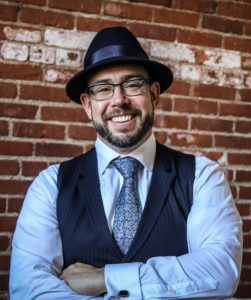
In Drew Dudley’s TEDx talk “Everyday Leadership,” he calls on society to celebrate leadership as the everyday act of improving each other’s lives. Dudley is the founder of Day One Leadership, where he works with individuals and organizations “to unlock their leadership potential.” His book, “This Is Day One: A Practical Guide to Leadership That Matters” asserts that everyone can become a leader in everyday life. Chief Learning Officer spoke with Dudley about why he thinks leadership is far more accessible than society deems it to be.
This transcript has been edited for space and clarity.
CLO: You believe leadership is not a characteristic reserved for the extraordinary. How do we need to redefine leadership?
We need to redefine leadership as a daily choice, instead of a set of accolades or achievements that are earned overtime. Every day we get up in the morning, every single one of us. Whether or not we’re a leader is not determined by how much money we made or what are title is, it’s simply on how much we do in any given day that lives up to what leader does. Your leadership is evaluated daily by how many specific acts of impact, growth, empowerment, courage, class and self-respect that you demonstrate every day. Everybody has the capacity to create those acts. If you cannot point specifically to things you’ve done in a given day that live up to core leadership behaviors, I don’t care what you’ve done over the past 10 years, you’re not a leader that day. If we look at leadership like that, we all start at the same place, with an opportunity for and an obligation to live as leaders every single day. Leadership needs to be a practice, not a hobby. That way of looking at leadership is a lot more inclusive because it doesn’t allow people to rely on what they’ve done in the past; it must be re-proven through their actions every day.
I want to be clear, I don’t claim everybody can be CEO or a senior manager or start their own company, but there is a form of leadership to which we all can and should aspire. The type of leadership we’ve been taught to chase is one form of leadership, but it’s not the only type that should be celebrated. We need to acknowledge that for most organizations, the people who interact the most with the public —with customers and clients —play the biggest role in what people think of your company. Those are usually the people who are paid the least. It’s important that we recognize the powerful impact their behaviors have every day. When those behaviors reflect positively on their co-workers, clients and the community, we should be calling those moments leadership.
CLO: How can learning leaders help people find the leader within themselves?
Point it out to them. Leadership recognized is leadership created. If you want to create more leadership within the organization, the first step is to better recognize that which surrounds us already. For better or for worse, the things that make us feel good when we do them are the things that we are driven to do over and over again. It’s why we binge on carbs, because it makes you feel good when you do it. Ultimately, when we let moments of leadership pass by and we don’t recognize them, we’re missing an opportunity to reinforce and make them happen more often. When somebody engages in a behavior that is beneficial to an organization, their team, themselves or you personally, and you let it slip by, you haven’t recognized the moment of leadership, and you’ve made it less likely that it would be repeated.
Help people identify their own personal values. Most people don’t know what they are because we grew up being taught that we should pay the most attention to the things on which we’re going to be tested. It’s important to realize that you are surrounded by people who were never tested on their values. We never asked, “What are the criteria you’re going to use to make the most difficult decision?” Organizations spend a lot of time and money identifying the core company values. Managers and educators don’t spend any time helping their employees unlock their own personal values because they think it’s none of their business. A learning leader’s job isn’t to tell people what their personal value should be; it’s to make sure they know what they are, so they get the opportunity to live those values through their work.
CLO: What are some small steps people can take to become effective leaders?
If you’re going to help other people identify their values, you have to start by identifying your own. When you come up with those values, define them clearly. What does each one of those words mean? When you identify and define your core values, you’ve created a list of criteria for decision-making — both personally and professionally. Often, the option that’s most consistent with your list of values sucks. It’s not the one that avoids the most punishment; it’s not the one that allows you to look the best, or even stay in the job or remain in the relationship. But it’s always the decision you were happiest you chose five years from now. When you are faced with a difficult personal or professional decision, ask yourself: What would the person I want to be do in this situation? Then do that. Leaders do not make decisions based on what will avoid the most consequences right now. They make decisions based on what aligns with their values.
CLO: By consciously stopping to look for external approval and refusing to “play the game,” how do we empower ourselves to lead better?
When you’re driven by external approval, your focus is on trying to please others. The biggest question driving behaviors in your life is: What do I have to do? Leaders are driven by an entirely different question: Who do I have to be? Who do I have to be to be the type of person who is great at that job? Who do I need to be to be the type of person who makes everyone around me shine brighter? When you focus on what you have to do, your focus is on pleasing others. When you ask who do I need to be, it’s about what you expect from yourself. That shifts your focus to who ultimately has to be satisfied with your life. The question becomes: What is it that I expect from myself? And can I prove to myself that I live that today? That is a far more effective way of being the type of person you want to be and the type that inspires others to be better as well.
CLO: What advice can you offer on how to work with people whose leadership styles differ than yours?
The foundation of every interpersonal or organizational dysfunction is fear. People are afraid they’re going to have something taken away: money, influence or power. Or they’re afraid they’re going to be given something they don’t want: more work or something they don’t have the skill for. The question to ask yourself is, what is this person afraid of? They often don’t realize it. When you can address a dysfunction at the level of the fear that causes it, rather than by addressing the behaviors that emerge from that fear, you’re always going to be better off. Use these three words as a mantra: Elevate, don’t escalate. When you’re getting frustrated, run those three words through your head. Leaders elevate situations, they never escalate them. Elevating means trying to succeed, escalating means trying to win.















